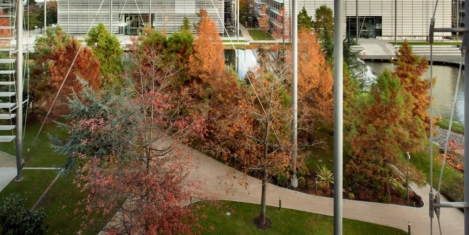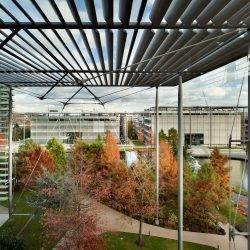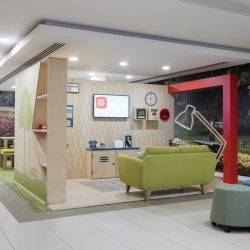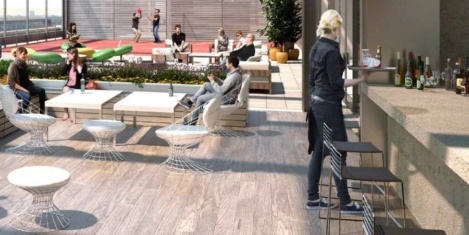June 23, 2017
Neuroscience: the next great source of competitive advantage 0
 The average worker is interrupted or distracted every three minutes and it takes them fully twenty-three minutes to return to a task after being interrupted. Office workers are overwhelmed by distractions, due mainly to a lack of understanding of how to manage attention. Distractions and the inability to focus negatively affects productivity, engagement, wellbeing and overall performance in organisations. We long to be more effective, but the harder we try, the more tired our brains become. Attention meltdowns are epidemic because workers do not understand what attention is, how to manage it or have access to the best places to support their tasks. In workplaces throughout the world scenarios of near constant distraction have become the norm, to such an extent that often people do not even feel compelled to comment on them and their consequences.
The average worker is interrupted or distracted every three minutes and it takes them fully twenty-three minutes to return to a task after being interrupted. Office workers are overwhelmed by distractions, due mainly to a lack of understanding of how to manage attention. Distractions and the inability to focus negatively affects productivity, engagement, wellbeing and overall performance in organisations. We long to be more effective, but the harder we try, the more tired our brains become. Attention meltdowns are epidemic because workers do not understand what attention is, how to manage it or have access to the best places to support their tasks. In workplaces throughout the world scenarios of near constant distraction have become the norm, to such an extent that often people do not even feel compelled to comment on them and their consequences.




















 The British Institute of Facilities Management (BIFM) has issued updated guidance to help in-house FM teams understand what is involved in managing and changing space. The revised Space Planning and Management Good Practice Guide aims to provide practical advice on the tools and techniques that can be deployed when planning and managing space, clearly illustrating the processes involved and enabling facilities managers to set overarching space management strategies for their organisation. Key areas covered in the guide include space demands, strategy and standards, programming and managing projects and the technologies available to help with the process. The guide has been updated by its original author Joanna Eley, director of Alexi Marmot Associates.
The British Institute of Facilities Management (BIFM) has issued updated guidance to help in-house FM teams understand what is involved in managing and changing space. The revised Space Planning and Management Good Practice Guide aims to provide practical advice on the tools and techniques that can be deployed when planning and managing space, clearly illustrating the processes involved and enabling facilities managers to set overarching space management strategies for their organisation. Key areas covered in the guide include space demands, strategy and standards, programming and managing projects and the technologies available to help with the process. The guide has been updated by its original author Joanna Eley, director of Alexi Marmot Associates.

















June 29, 2017
The onus is on employers to create working conditions that attract people 0
by Graham White • Comment, Facilities management, Wellbeing
More →